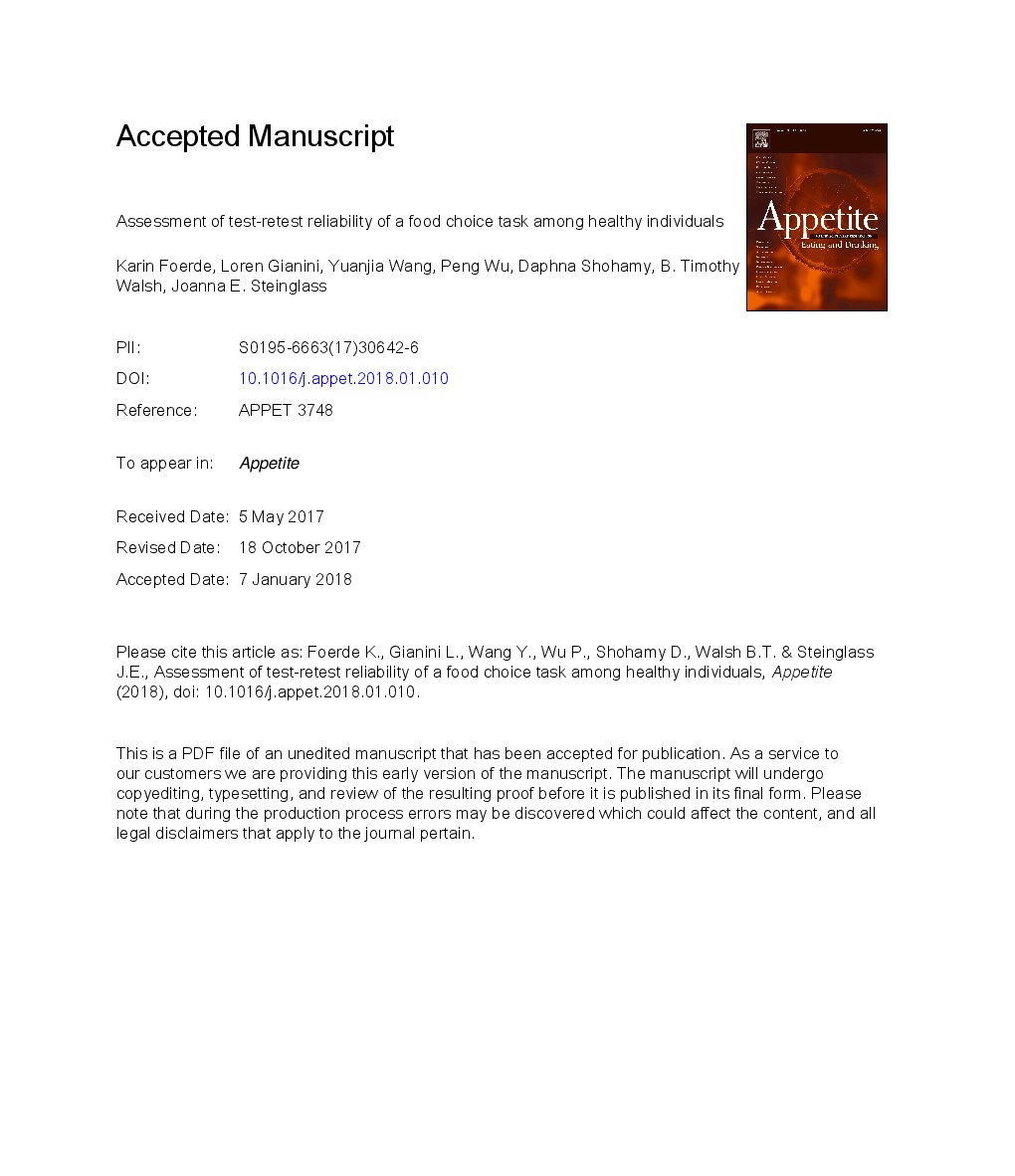ترجمه فارسی عنوان مقاله
ارزیابی قابلیت اطمینان مجدد آزمون از یک انتخاب غذایی در میان افراد سالم
عنوان انگلیسی
Assessment of test-retest reliability of a food choice task among healthy individuals
| کد مقاله | سال انتشار | تعداد صفحات مقاله انگلیسی |
|---|---|---|
| 140383 | 2018 | 20 صفحه PDF |
منبع

Publisher : Elsevier - Science Direct (الزویر - ساینس دایرکت)
Journal : Appetite, Volume 123, 1 April 2018, Pages 352-356
ترجمه کلمات کلیدی
تست-قابلیت اطمینان مجدد، اختلالات اشتها، بی اشتهایی عصبی، چاقی، انتخاب غذا، طولی
کلمات کلیدی انگلیسی
Test-retest reliability; Eating disorders; Anorexia nervosa; Obesity; Food choice; Longitudinal;

